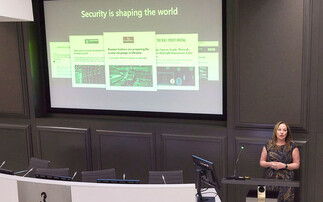Google, Facebook, Twitter, Microsoft and especially WhatsApp all in Rudd's anti-encryption firing line
Home secretary Amber Rudd has claimed that "real people" don't need end-to-end encryption and that such security only benefits terrorists. Rudd is on a summer tour of Silicon Valley to complain ...
To continue reading this article...
Join Computing
- Unlimited access to real-time news, analysis and opinion from the technology industry
- Receive important and breaking news in our daily newsletter
- Be the first to hear about our events and awards programmes
- Join live member only interviews with IT leaders at the ‘IT Lounge’; your chance to ask your burning tech questions and have them answered
- Access to the Computing Delta hub providing market intelligence and research
- Receive our members-only newsletter with exclusive opinion pieces from senior IT Leaders





















